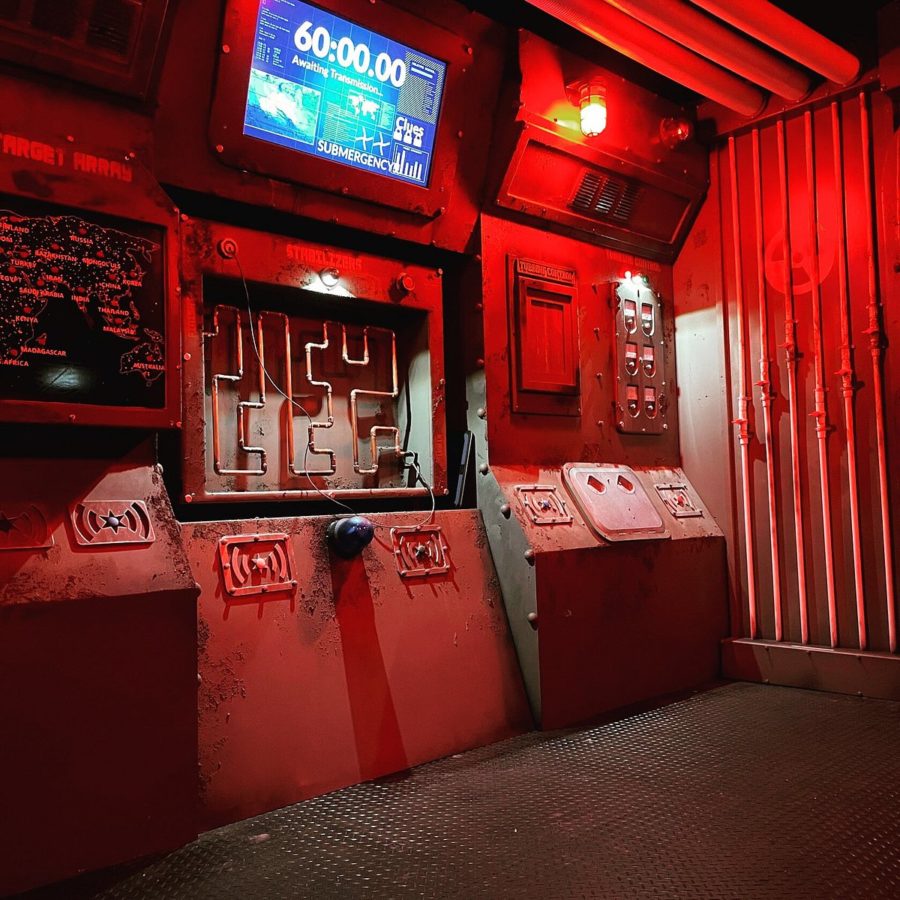The Code to Escaping Escape Rooms
Put teamwork, creativity, persistence, and many more skills to the test by trying to escape a room under timed pressure.
April 17, 2023
Tick-tock, tick-tock — 59, 58, 57, 56 … The seconds tick away as you and your team look high and low for clues. The adrenaline pumps through your blood as the timer reaches zero. Although it may be stressful in the last moments, the overall experience of doing an escape room is undeniably memorable. Whether it be a horror, Sherlock Holmes, or fantasy themed escape room – the possibilities are endless – there are certain skills and team dynamics that will improve your chances of escaping.
Some people may argue that escape rooms depend on intelligence: those with higher IQs are better at escaping. Although intelligence can contribute to your success, it is only one of the many factors that help with escaping escape rooms, and it is lower on the list of important traits. Arguably, the most necessary trait for solving escape rooms is creativity. Creativity is what helps you think of where to look for hidden clues and solutions to abstract puzzles. In addition, persistence is a key trait because people often give up when the puzzles get hard or confusing. Also, there is usually many puzzles that need to be solved and locks that need to be unlocked before escaping, which is why it is essential to be patient and persistent. Lastly, one of the most vital skills is communication with your group. It is beneficial for everyone to share their progress on clues. Although not everyone has to be working on the same clue at the same time, it is good to know what everyone is working on since clues might correlate with each other.
When doing an escape room with a group of friends, it can be an incredibly fun experience, but it can also end in disaster. The most effective group will be the one with diverse thinkers. If everyone has different strengths, it will be easier to work together. For example, one person should take up the leadership position: in charge of looking at the big picture, keeping his/her teammates on the same page, and guiding other players when necessary. The leader should be someone who is calm under pressure, can think quickly on his/her feet, and is focused on completing the tasks. Escape rooms are significantly harder if there is more than one leader giving orders. If there are two or more bigger and louder personalities in the room, they can often contradict each other and make the group incohesive. Next, have one or more team members be adaptable: these players are flexible and help with whatever the leader needs them to do. They can handle whatever challenges and do not give up easily. Furthermore, there should be at least one person who is a risk-taker. A good risk-taker is someone who is not afraid to try new things, does not scare easy, and is confident. At least one person should be a risk-taker, especially if the escape room is horror themed. Nikita Gupta (11) shares her experience going to a horror escape room with her friends. She describes a “dark, pitch black tunnel that someone had to crawl through. Everyone was scared and didn’t want to crawl through it, but thankfully one of my friends was brave enough to go through by herself.”
Not to mention, the skills that are listed above – creativity, persistence, communication – will be strengthened with every escape room you do regardless of the outcome. It is still challenging yourself and your brain in a different way to help it grow. The group doing the escape room will also come out stronger, or at least they will realize whether or not they make a good team. Escape rooms are also a great way to encourage team bonding: being trapped in a room together for one hour will help a team get to know each other. But above all, it is fun!
So, if you and your friends are looking for something to do, find an escape room and put your teamwork skills to the test. Hopefully, everyone can play to their strengths to beat the clock. Best of luck!





































